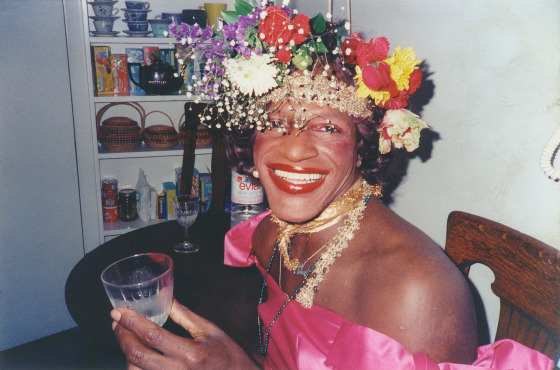The legacy of LGBTQ civil rights leader Marsha P. Johnson will be set in stone after 166,000 people signed a petition to have her honored posthumously in her hometown of Elizabeth, New Jersey.
Officials in Union County, where Elizabeth is the largest city with approximately 125,000 residents, announced Thursday that a statue of Johnson will be erected near her hometown's City Hall. County officials, Johnson’s family and statewide LGBTQ group Garden State Equality plan to host a series of public events during LGBTQ History Month in October to encourage the public to participate in the planning and creating of the monument, which officials anticipate will be the first public monument in New Jersey to honor an LGBTQ person.
Johnson, who died in 1992 under suspicious circumstances, is best known for her role in the 1969 Stonewall uprising and for her work supporting low-income LGBTQ people of color. Alongside fellow transgender pioneer Sylvia Rivera, Johnson co-founded the Street Transvestite Action Revolutionaries, a political collective that provided housing for queer youth and sex workers in lower Manhattan.
The announcement of the statue honoring Johnson followed an online petition, which was started in June by Elizabeth residents, calling for a Johnson monument to replace the town’s existing statue of Christopher Columbus, who the petitioners said is "not a figure to be celebrated."
"We should commemorate Marsha P. Johnson for the incredible things she did in her lifetime and for the inspiration she is to members of the LGBT+ community worldwide, especially black trans women," the petition read.
The petition circulated as monuments of controversial historical figures were being defaced, torn down or officially removed amid national Black Lives Matter protests.
“This is a really great moment to examine why America is celebrating a past that’s riddled with colonizers and killers and people who’ve oppressed other people for decades,” Steven G. Fullwood, a historian and a co-founder of the Nomadic Archivists Project, told NBC News in July. “And then we have someone like a Marsha; we have an opportunity to reset and rethink what we think about freedom in this country.”
Johnson was born in 1945 in Elizabeth and lived there until after high school, when she moved to nearby New York and eventually became a leader of the LGBTQ rights movement. While she is celebrated in death as a pioneer of the modern LGBTQ rights movement, she was marginalized in her lifetime — reportedly being told to march in the back of at least one early New York City Pride march.
“She did represent a radical vision of what we’re now taking for granted 50 years later,” Fullwood said. “More conservative and mainstream white gays weren’t interested in having her and Sylvia and other people like that represent the movement.”
The forthcoming statue in Elizabeth is not the only public project that will honor Johnson. Last year, New York City officials announced Johnson and Rivera would be honored with a monument in the city's Greenwich Village neighborhood, and earlier this month, on what would have been Johnson's 75th birthday, New York Gov. Andrew Cuomo dedicated a state park in Brooklyn to her. The Marsha P. Johnson State Park, formerly known as East River State Park, is the first state park in New York to honor an LGBTQ person.



